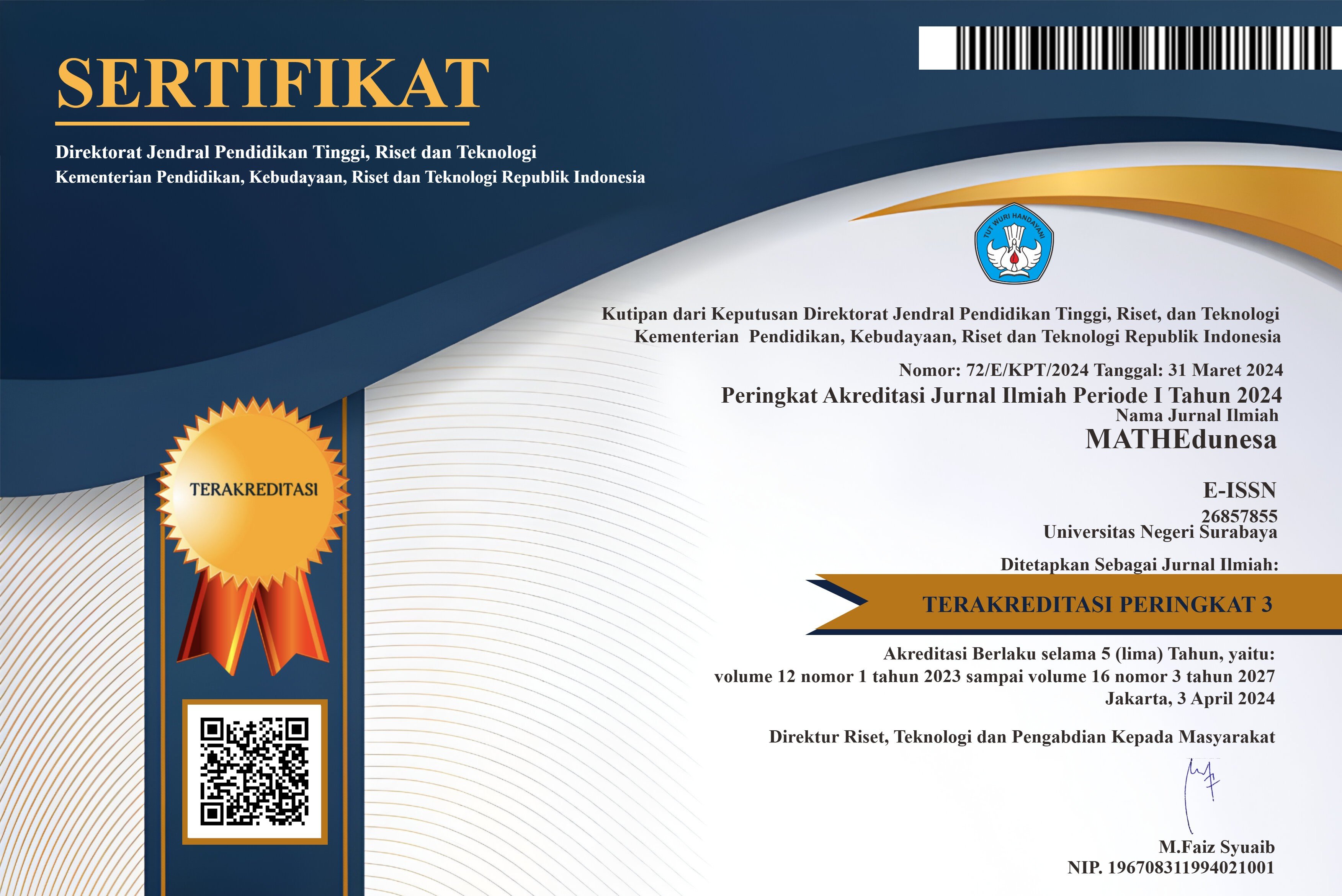Kemampuan Berpikir Komputasional Peserta Didik dengan Kecerdasan Logis Matematis Tinggi dan Sedang dalam Menyelesaikan Bebras Task
DOI:
https://doi.org/10.26740/mathedunesa.v14n1.p118-128Abstract
Indonesia's Minister of Education and Culture determined Merdeka Belajar Kampus Merdeka Curriculum) in 2019. Computational thinking is one of the skills that supports curriculum development in science and technology. Bebras tasks can be used to practice computational thinking. The research aims to describe the computational thinking abilities of students with high and medium mathematical and logical intelligence in completing bebras tasks. The research method is qualitative descriptive. Instruments in research are logico-mathematical intelligence tests, mathematical ability tests, computational thinking tasks, and interview guides—data analysis through data condensation, data presentation, and conclusions. The subjects in the research are students in class XI SMA Negeri 4 Kediri, one student with high and medium mathematical logical intelligence. The research results show that students with high logico-mathematical intelligence can answer entirely and in detail because they always give reasons that support indicators of problem decomposition, pattern recognition, algorithmic thinking, abstraction, and generalization. Meanwhile, students with medium logico-mathematical intelligence can answer well but do not complete the problem decomposition indicator and have less understanding of questions, so there are errors in calculations on the pattern recognition indicator. Based on the research results, the researcher hopes educators introduce Bebras tasks in mathematics learning to improve computational thinking.
Downloads
Downloads
Published
Issue
Section
 Abstract views: 150
,
Abstract views: 150
, PDF Downloads: 217
PDF Downloads: 217




